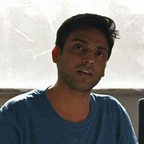Now that the dust has settled on the acquisition of WhiteHat Jr by Byju’s, here is the lowdown:
Karan Bajaj has been lauded for creating a new category. This is a rare praise, and highly deserved. Outcompeting everyone in an existing category with relentless execution is rare enough; focussing on a hitherto ignored category in an otherwise crowded space, and then owning it, is stuff entrepreneurs’ dreams are made of.
Of course, not without some blemish.
WhiteHat Jr has been criticised for its marketing campaigns, with communication designed, allegedly, to guilt-trap middle class parents. They have often featured silicon valley founders — along with their salaries and net worth — exhorting parents to get their kids to learn to code to get there. The issue of whether or not their permission was sought aside, people have posited that the real value, even in technology, is created by logical problem solving and creative thinking. And not by being able to drag-and-drop to create an app with no/low code technology.
Their sales tactics have also been criticised for being too pushy. Sounds familiar? And now, with the sales might of the world’s biggest edtech company Byju’s selling the product, along with pressure to show results for the 300 million dollar price tag, sales will probably only get more aggressive from here.
The above is just a round-up of other people’s reactions to the deal. I personally have no personal experience of trying or buying a WhiteHat Jr product, or a competing product.
And I do understand that outsiders, like me, often do not have the complete context of why a company is going with a certain strategy or tactic. Perhaps they tried to talk about the core value of the product, and focussed on the utilitarian aspects only when the former didn’t work. Perhaps they didn’t want to fix something that is working just fine.
However, I have been on the learner side of programming education at different points of time in my life, and, in the context of this debate, I would like to share my personal experiences on how that went.
Beyond having to memorize computer terminologies and definitions, and some lab classes on Logo, Basic, and all, my real foray into learning programming was in the last 2 years of school where we learnt C++.
It started with a very promising first class: the teacher asked a student to close the window. He got up, did it, and returned to his seat. The teacher then went on to point that returning to his seat was something the student automatically deduced and was not part of the instructions. If a robot were asked to do it, it would need step-by-step instructions, and would do exactly that. And that, in a nutshell, is programming!
And then, it went downhill from there.
For the next two years, we just solved gotcha questions: this code won’t compile as it’s missing a semicolon; this second line is not part of this function as parentheses are missing; this variable is not a global variable and so has no value in this block of code. And so on.
New topics came and went. But the gotcha style of questions always remained the same.
By the end, most people were apathetic towards the subject, and eventually almost everyone in the class, pressed for time by various entrance examinations, submitted different flavors of a library management software that they had bought, as their final project. And all this was despite us having a great teacher, trying to do her best despite the constraints of the curriculum.
Same story, unfortunately, continued at college. The common courses in fresher year at IIT, were similarly focussed on extra semicolons and missing curly braces. In the sophomore year, it moved suddenly to Big O notations and the most efficient way to insert a new element into an array. Lab classes were around finding palindromes, and so on.
Better, but at no point, we had to think of a personal project, and then work backwards from there to see how programming can help us achieve that.
This brings me to how we learn languages (natural languages, not programming) as kids, and what we enjoy more: learning Grammar, or learning Literature.
I enjoyed learning English in school, as I fell in love with the amazing catalogue of novels (Enid Blyton, mostly) that our school library had, and not because the English grammar was fascinating to learn. And, credit where it’s due, even the school curriculum had two amazing books — Gulliver’s Travels and Treasure Island — abridged versions of which were taught through the years 6 and 7, making English literature interesting to a lot of us.
Even today while writing, when faced with a doubt on what you are writing is grammatically correct or not, you go by ‘does it sound right?’ A knowledge accumulated by reading and writing a lot, outside of classes, and not from our grammar lessons.
I do not know if computer education has changed for the better in the past decade, and if the available K-12 products are doing a better job than the school and college curriculum. I’d love to hear the experiences of students, parents, and teachers on this matter. Though I won’t be surprised if it hasn’t changed: our education system has always been examination-oriented, with the eventual goal to get jobs, rather than creating thinkers who can build businesses.
If it is not already being done, I see space for yet another product which could be less hands-on, beyond the basic grammar, and more oriented towards helping students to start their journey of taking their business idea to a finished product.
Gain Access to Expert View — Subscribe to DDI Intel
